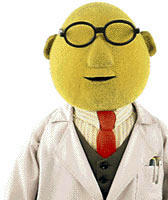We looked at Chapters 2 and 3 of Brooke last week and focused on the near co-incident hinges of history called the Scientific Revolution and The Reformation. There were a few notable quotes:
"In Chapter II we address a specific historical problem: The interpretation of those shifts in the understanding of nature that, during the sixteenth and seventeenth centuries, added up to what traditionally been called the Scientific Revolution." (p. 12)
"While it is true that investigations into nature were often subordinate to religious concerns in the late medieval period, it would be mis-leading to imply that they were bound together in am indissoluble complex until they were prized apart in the seventeenth century" (p. 12)
"It is even possible to argue that the scientific revolution saw an unprecedented fusion of science with theology, resulting in more secular forms of piety" (p. 53)
"A reverence for antiquity, though an appropriate stance for theology, was inappropriate for natural philosophy where reason and the senses held sway" (p. 56)
"Strictly speaking, it was impossible to effect a fusion of Christianity with Aristotle - as Aquinas was well aware. In selecting those facets of Aristotle's teaching that he considered illuminating, he was guided by the demands of his faith" (p. 60)
"The problem is, however, that real history rarely conforms to later stereotypes." (p. 64)
"Protestant critics, looking for a religion denuded of magic, would enlist the Bible on their side" (p. 71)
"The search for signs of God in nature had often been based on the assumption that the two books had been written in essentially the same language." (p. 77)
"They imply an earlier fusion, when it is more accurate to speak of subordination. And they imply divorce when what was achieved in the seventeenth century was a differentiation often conducted on theological grounds" (p. 81)
"In Chapter III we raise the question whether parallels can be drawn between the the reform of learning through experimental science and the reform of religion that occurred through the Protestant Reformation" (p. 12)
"While there is circumstantial evidence to suggest that certain Protestant societies were more tolerant toward new scientific learning, the difficulties that arise in testing such generalizations can be formidable." (p. 12)
"If Protestantism was more conducive that Catholicism to the expansion of science, one would expect this to manifest itself in a greater receptivity toward new and controversial ideas" (p. 83)
"True wisdom recognised the limitations of knowledge" (p. 87)
"Calvin's theology, no less than Luther's, illustrates that same capacity within Christianity for self-criticism and renewal" (p. 95)
"Whereas academic philosophers with a vested interest in preserving the Aristotelian world-picture were united against Galileo, there was no such unanimity among his clerical contacts, some of whom gave constructive advice." (p. 101)
"Put another way, puritan values helped to create an audience receptive to programs for the improvement of man's estate." (p. 111)
"The idea of a correlation between a latitudinarian and a scientific mentality can be appealing. They could be bound together by the belief, found in Bacon, that religious controversies were an impediment to science. There could be a suspicion of dogma, whether religious or scientific." (p. 115)




1 comment:
Are we allowed to have a dictionary with us for the final?? :)
I find when I am reading Brooke I have to have a dictionary right there beside me because I am looking up words on every page!! Maybe it will help to expand my vocabulary.
Post a Comment